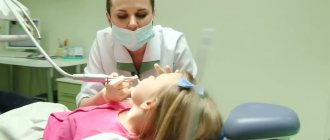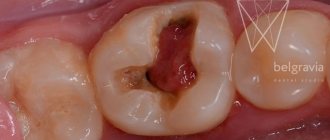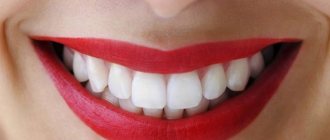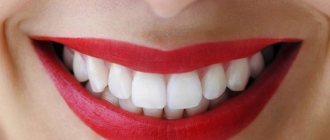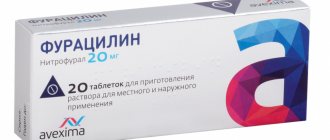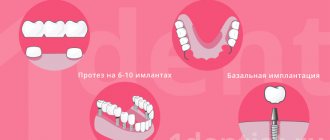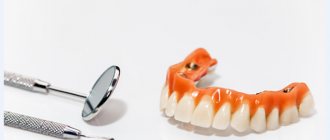Since childhood, we have all been told how important it is to eat right, that the vitamins and minerals entering our body are no less important than the food itself. These rules were especially remembered by those who, since childhood, did not like fish, cottage cheese, vegetables and other healthy foods. But our parents were right: our health greatly depends on what and in what quantities we eat. Even dental diseases very often arise precisely because of poor nutrition. What about tea, everyone’s favorite drink, so common in every home, in every family? Let's figure out what benefits it brings to our teeth, if, of course, we consume it without sugar.
Benefits of tea
Green hour has a very beneficial effect on the oral cavity: it improves blood circulation in the gums and also strengthens the teeth. Thanks to the beneficial microelements contained in tea (fluoride, iron, zinc, calcium), you can even avoid inflammation of the gums and tissues surrounding the tooth, and also slightly whiten your teeth. Naturally, tea cannot make it snow-white like after a teeth whitening procedure in Minsk
Scientists have proven that people who regularly drink green tea visit the dentist much less often. This, of course, does not mean that lovers of this drink do not suffer from oral diseases; it’s just that tea has a kind of preventive effect, since it is considered a good antibacterial agent against caries. Why not help on the farm? Saves us money on dental treatment under anesthesia or any other dental procedures that help maintain healthy teeth. And for those who suffer from halitosis, or, in other words, bad breath, green tea can easily replace chewing gum or mints. In general, solid advantages, and that’s all.
Types of plaque on teeth
Tea is one of the most popular drinks in our country, so many people face the problem of plaque formation due to the use of this drink. The more fermented your tea is, the more likely it is that plaque will appear. Tannin, which gives the drink a bitter taste, also gives a dark tint, which actually remains on your teeth. In some cases, adding milk to tea will help avoid staining, but not everyone likes it.
If you notice that your teeth or your child’s teeth are turning yellow, remember that this may not only be a consequence of frequent tea drinking, but also evidence of dysbiosis and other troubles. In this case, the best solution would be to contact a specialist.
How to remove tea stains from teeth
There are many ways to remove plaque, all of which can be divided into professional and home ones.
It’s easy to deal with minor plaque on your own. Just remember that home remedies are not effective against old and very dark deposits.
Here it is better to consult a dentist; professional teeth cleaning 1-2 times a year can save you from many problems. To ensure that the result of care lasts for a long time, maintain it with a special paste.
There are several methods for removing plaque. One of the most popular is the use of a specialized Air-flow device, which creates a powerful stream of water. Abrasives are added to the liquid, which make it easy to remove deposits of any complexity. The procedure is usually performed without anesthesia.
Another option for professional care is ultrasonic cleaning, which can easily cope with even the densest plaque. After this procedure, the dentist polishes and grinds the surface of the teeth. The choice of method depends on the degree of contamination and your preferences.
Harmful effects
As for the harm, here we will have to talk specifically about black tea. Just like coffee, it contains caffeine, which can stain tooth enamel. But, at the same time, black tea, like green tea, fights oral bacteria. The main thing to remember is that you need to brew tea and, if possible, avoid tea bags, since they do not provide any benefit to your teeth. Let us also remember about herbal teas: many dentists warn that this type of tea, if consumed in large quantities, can contribute to the destruction of enamel. In this case, fluoridation or dental implantation in Minsk will be simply necessary. But this is an additional waste of money that could have been avoided if you followed the doctors’ recommendations.
Clinical researches
Clinical studies have proven that regular use of ASEPTA professional toothpaste improved the condition of the enamel by 64% and reduced tooth sensitivity by 66% after just 4 weeks.
Sources:
- Report on the determination/confirmation of the preventive properties of personal oral hygiene products “ASEPTA PLUS” Remineralization doctor-researcher A.A. Leontyev, head Department of Preventive Dentistry, Doctor of Medical Sciences, Professor S.B. Ulitovsky First St. Petersburg State Medical University named after. acad. I.P. Pavlova, Department of Preventive Dentistry
- Report on determining/confirming the preventive properties of toothpaste “ASEPTA PLUS” COFFEE and TOBACCO Author: doctor-researcher A.A. Leontyev, head Department of Preventive Dentistry, Doctor of Medical Sciences, Professor S.B. Ulitovsky. First St. Petersburg State Medical University named after. acad. I.P. Pavlova, Department of Preventive Dentistry
- Report on determining/confirming the preventive properties of toothpaste “ASEPTA PLUS” GENTLE WHITENING” Author: doctor-researcher A.A. Leontyev, head Department of Preventive Dentistry, Doctor of Medical Sciences, Professor S.B. Ulitovsky First St. Petersburg State Medical University named after. acad. I.P. Pavlova, Department of Preventive Dentistry
- Clinical and laboratory assessment of the influence of domestic therapeutic and prophylactic toothpaste based on plant extracts on the condition of the oral cavity in patients with simple marginal gingivitis. Doctor of Medical Sciences, Professor Elovikova T.M.1, Candidate of Chemical Sciences, Associate Professor Ermishina E.Yu. 2, Doctor of Technical Sciences Associate Professor Belokonova N.A. 2 Department of Therapeutic Dentistry USMU1, Department of General Chemistry USMU2
- Clinical studies of antisensitive toothpaste “Asepta Sensitive” (A.A. Leontyev, O.V. Kalinina, S.B. Ulitovsky) A.A. LEONTIEV, dentist O.V. KALININA, dentist S.B. ULITOVSKY, Doctor of Medical Sciences, Prof. Department of Therapeutic Dentistry, St. Petersburg State Medical University named after. acad. I.P. Pavlova
- The role of anti-inflammatory rinse in the treatment of periodontal diseases (L.Yu. Orekhova, A.A. Leontyev, S.B. Ulitovsky) L.Yu. OREKHOVA, Doctor of Medical Sciences, Prof., Head of Department; A.A. LEONTIEV, dentist; S.B. ULITOVSKY, Doctor of Medical Sciences, Prof. Department of Therapeutic Dentistry of St. Petersburg State Medical University named after. acad. I. P. Pavlova
conclusions
No matter what benefits or harm various types of tea may have, you should not deny yourself a mug of your favorite drink, however, just as you should not drink it in large quantities. Everything should be in moderation and on time. Don’t forget about regular visits to the dentist, as well as the rules of oral hygiene, because healthy and harmful foods are only part of what contributes to dental diseases; the rest depends on us. Take care of your teeth now, and then your smile will be beautiful and healthy for many years.
What foods stain teeth?
- Coffee
. Lovers of this drink most often have a yellow or brownish coating on their teeth. This is due to the cocoa butter, heavy carbohydrates and sugars contained in coffee. Instant coffee has a greater effect on dental health than ground coffee.
enamel. You can reduce the effect of coffee on your teeth by diluting it with milk or water. It is also best to limit your coffee intake to one cup per day. - Tea
. Contains tannins and, like coffee, stains teeth a yellowish-brown tint. Tea in bags is most harmful to teeth: due to the artificial components contained in it, which happens very often, it stains teeth more than leaf tea. The type of tea - green or black - does not matter. - Wine
. White wine contains acids that negatively affect tooth enamel, causing microcracks to appear through which coloring substances penetrate deeper. Red wine contains tannins and a burgundy-red tint, which also contributes to tooth staining. - Carbonated drinks
. Not only do they change the color of your teeth, but they can also leach calcium from your teeth. In addition to a huge amount of sugar, they contain malic, citric and other acids that literally “corrode” the enamel. You should especially beware of colored soda - it not only corrodes the enamel, but can also stain the tongue and teeth in poisonous colors. If you decide to drink Coca-Cola, do it through a straw, this will reduce the harmful effects on your teeth. - Juices
. Bright and dark juices, such as pomegranate, cranberry, grapefruit, etc., due to their bright color, can also cause yellowing of teeth. It is healthier to simply eat fruit or drink juice diluted with water. - Vegetables and fruits
. Berries that are rich and dark in color, such as blueberries, blackberries, blueberries, cherries, and cranberries, can cause staining and yellowing of teeth. Among vegetables, beets are a strong dye due to the high content of chromogens in them. To prevent dark plaque from forming on your teeth, it is recommended to brush your teeth immediately after eating beets. - Sauces and seasonings
. Many seasonings that have a yellow or brown tint are also on the list of foods that stain teeth. Due to their bright color and high acid content, tomato-based sauces are harmful to teeth. Also, do not overuse soy sauce. - Chocolate and ice cream
. Chocolate and caramel from their color also lead to darkening of the enamel. As for ice cream, sweet and fruit desserts, they contain artificial food colors and chemical components that lead to microtrauma and staining of teeth.
To avoid staining and maintain the natural color and health of your teeth, we recommend visiting a dentist once every 6 months for professional oral hygiene.
You can make an appointment by phone. 8(863)2098902.
Green tea
In general, all types of tea are obtained from the leaves of one plant. The only difference is the degree of processing. To obtain green varieties, the leaves are subjected to weak fermentation or not fermented at all, so they retain most of the beneficial substances: antioxidants, organic acids, various vitamins and minerals.
Briefly about green tea: 1. Used in traditional Indian and Chinese medicine. 2. Contains antioxidants, vitamins and beneficial microelements. 3. Helps normalize weight. 4. Slows down aging and improves the condition of skin, nails and hair. 5. Not suitable for people with high blood pressure. 6. Used in the prevention of serious diseases, including cancer. 7. Contains caffeine and can cause insomnia. 8. Stimulates brain function more gently and safely than coffee. 9. Has a diuretic effect. 10. The recommended norm is no more than three cups per day.
The effect of green tea on the health of teeth and gums
Drinking green tea daily reduces the risk of developing tooth decay, gum disease, and even oral cancer. The main thing is to drink the drink without added sugar, otherwise some of the beneficial effects will disappear.
Numerous studies have shown that green tea:
Prevents the development of caries. The main cause of tooth decay is bacteria living in plaque. They digest sugars from food and as a result produce lactic acid, which destroys tooth enamel. Green tea's antioxidants (catechins) inhibit bacterial activity, thereby reducing acidity in the mouth. Fluorides have an additional anti-caries effect, protecting tooth enamel from destruction.
Strengthens gum health. Catechins block the growth of bacteria that cause gum inflammation. This helps prevent gingivitis and periodontitis. In patients with established periodontitis who drink green tea daily, the disease progresses more slowly than in those who do not drink it. And their gum pockets are not so deep.
Green tea neutralizes sulfur compounds. These are specific volatile substances that are released by microorganisms living in the mouth. In its “deodorizing” ability, green tea is superior to mint, chewing gum and parsley essential oil. Reduces the risk of oral cancer. Green tea catechins have been shown to inhibit the growth of tumor cells and prevent the development of oral squamous cell carcinoma. This is the most common type of head and neck cancer.
“And how much green tea should you drink?”
Recommended dose: 3-4 cups per day. You should drink tea only when it is freshly brewed - in air, catechins gradually oxidize and the drink loses its beneficial properties. The brewing temperature should not exceed 85°C. Ratio of dry leaves to water: 3 g per 150 ml. Drinking more than 4 cups a day is not recommended, since green tea, like black tea, contains caffeine, which excites the nervous system and can cause insomnia.
https://zen.yandex.ru/media/roott/govoriat-zelenyi-chai-polezen-dlia-zubov-eto-pravda-5e6e60c658c7246c0e428f13 https://chaepedia.com/zelenii_chai/63-lechenie-zelenym-chaem.html https://style.rbc.ru/health/5f398a5b9a79477681abc25b https://www.ayzdorov.ru/tvtravnik_zelennii_chaii.php
What foods and drinks should you limit to keep your teeth healthy?
It is worth minimizing the consumption of certain types of food. These include, first of all, sweets, primarily non-natural (produced by the confectionery industry), soft ones that do not require chewing effort, as well as sticky and stringy ones. Sugar present in the oral cavity accelerates the proliferation of pathogenic bacteria. Many sweets stick to teeth, which contributes to tooth decay. Sugar-containing carbonated drinks and chewing gum are especially harmful to the oral cavity.
A large amount of red meat, fatty and fried foods contribute to the intensive proliferation of pathogenic bacteria in the oral cavity. Foods rich in acids that corrode tooth enamel should be eaten with caution. These include some citrus fruits, fruits, juices, marinades, and some canned foods.
You should consume less drinks and foods with a lot of caffeine, which removes calcium from the body. If you are used to eating a lot of chocolate, drinking strong tea or coffee (they, by the way, darken tooth enamel), then you should consume more foods high in calcium.


